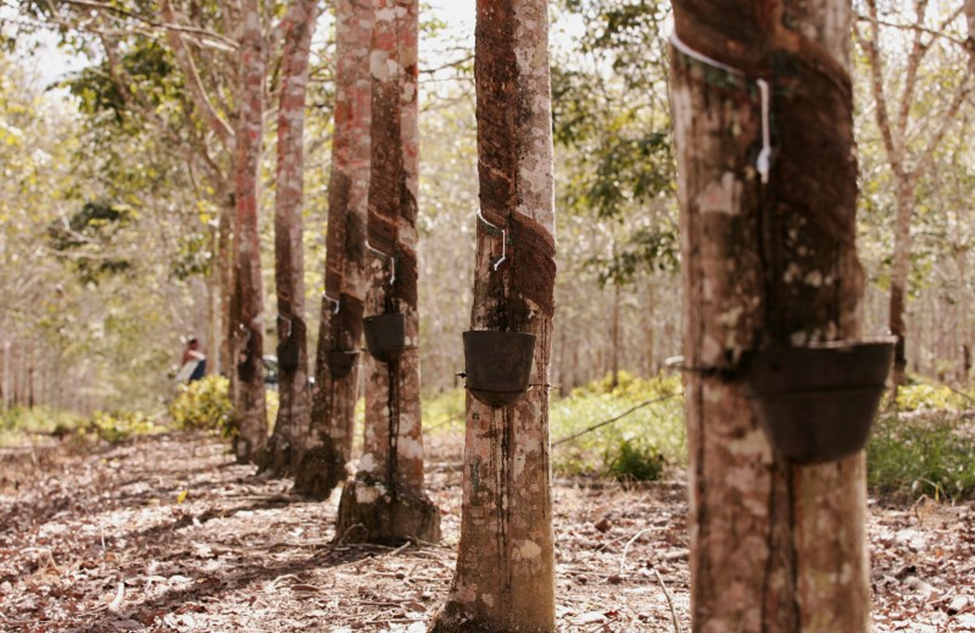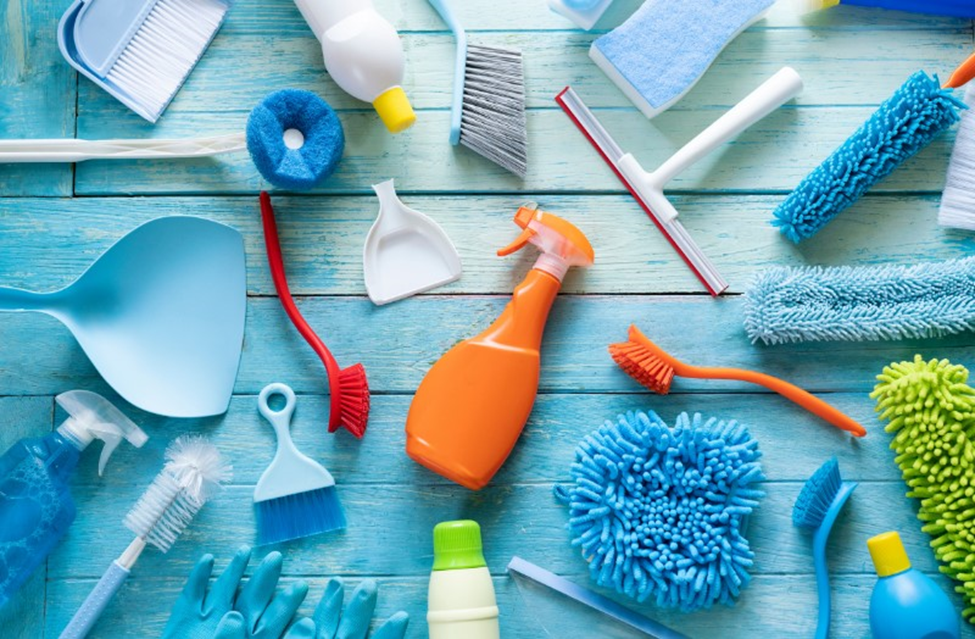The World’s Most Important Natural Resources
According to Harvey Firestone, founder of Firestone Tire & Rubber Company, the world’s “four most important natural resources are air, water, petroleum, and rubber.” The average person uses hundreds or even thousands of products made from rubber. While there are many types of rubber, all fall into two major classifications: natural rubber (latex or latex rubber, which is grown from plants) and synthetic rubber (artificially made in a chemical plant or lab).
Half of the world’s natural rubber is used in making auto tires. Quite often, these end up in dumps and landfills, or are burned in incinerators. Items like raincoats, pond liners, mattresses and cushions, pillows, grips on garden tools, bathtub plugs, doorstops, earplugs, hot water bottles, aquarium tubing, faucet washers, and rug backings are all often made from rubber. The healthcare industry uses enormous amounts of rubber in surgical tubing and gloves in labs and medical facilities, corks for lab flasks and vials, chemical-resistant mats and pads, birth-control devices, prosthetics, and other specialized products and equipment. Another major use of rubber is in household items like elasticized bands in clothing and hair ties, dish washing gloves, toys, jar seals, garden hoses, and boots.
Commercially, the most essential synthetic rubbers are styrene-butadiene (SBR), polyacrylics, and polyvinyl acetate (PVA); other types include polyvinyl chloride (PVC), polychloroprene (better known as neoprene), and various types of polyurethane. Although natural rubber and synthetic rubbers are similar in many ways, entirely different processes make them, and chemically, they are very different.
Understanding Rubber and Latex Experts
At the forefront of the rubber and latex industry are the experts who possess specialized knowledge and expertise essential for understanding, processing, and utilizing these natural resources effectively. These are professionals with a deep understanding of the properties, processing techniques, and applications of rubber and latex materials. They typically hold academic credentials in materials science, chemical engineering, polymer science, or related disciplines, and possess comprehensive knowledge of the chemistry, physics, and engineering principles underlying the production, modification, and utilization of rubber and latex products. Many of these experts have practical experience gained through years of research, development, and industrial practice in the rubber and latex sector, and have demonstrated proficiency in things like rubber formulation, compounding, processing, testing, and quality control.
An expert in rubber and latex can provide valuable assistance in numerous areas, including:
Product Development. Here, the experts offer insights into material selection, formulation, and processing techniques to develop new products or improve existing ones. The experts can help optimize material properties such as elasticity, durability, and chemical resistance to meet specific application requirements.
Process Optimization. This is where experts assess manufacturing processes and recommend improvements to enhance efficiency, reduce costs, and ensure consistent product quality. They may suggest modifications to equipment, formulations, or operating parameters to optimize productivity and minimize waste.
Quality Control. Here, the rubber and latex experts help establish quality control procedures, test protocols, and implement standards to monitor material properties and product performance throughout the manufacturing process. They help implement quality assurance programs to meet regulatory requirements and customer expectations.
Failure Analysis. In cases of product failure or performance issues, rubber and latex experts can conduct thorough investigations to identify root causes and contributing factors. They may perform laboratory tests, material analyses, and field evaluations to determine whether the failure resulted from material defects, manufacturing flaws, or improper usage.
Material Testing and Characterization. Experts can conduct various tests to evaluate the physical, mechanical, thermal, and chemical properties of rubber and latex materials. These tests can help assess material suitability for specific applications, verify compliance with industry standards, and troubleshoot performance issues.
Regulatory Compliance. Rubber and latex experts stay abreast of regulatory requirements and industry standards governing the production, labeling, and use of rubber and latex products. They can provide guidance on compliance matters, assist in obtaining certifications or approvals, and ensure compliance with environmental, health, and safety regulations.
Environmental Impact Assessment. Rubber and latex experts can assess the environmental footprint of rubber and latex manufacturing processes, including energy consumption, waste generation, and emissions. They can recommend sustainable practices, pollution prevention measures, and alternative materials to minimize environmental impact and improve sustainability.
Supply Chain Management. Rubber and latex experts advise companies on sourcing raw materials, selecting suppliers, and managing supply chain risks. They may help negotiate contracts, evaluate supplier capabilities, and ensure supply chain resilience to mitigate disruptions and optimize costs.
Market Analysis and Trends. Experts can conduct market research and trend analysis to identify opportunities, competitive threats, and emerging technologies in the rubber and latex industry. They can provide strategic insights to guide business decision-making, product positioning, and market expansion efforts.
Expert Witnesses. In these various realms, complications may arise, potentially leading to legal disputes. When such situations arise, attorneys often seek the expertise of rubber and latex professionals to serve as expert witnesses to assist judges and juries in understanding industry-related matters.
Conclusion
Rubber and latex experts play a vital and multifaceted role in propelling the rubber and latex industry forward. Their expertise is the driving force behind innovation, quality assurance, and sustainability initiatives within this dynamic field. By leveraging their deep understanding of materials science, polymer chemistry, and manufacturing processes, these experts contribute to the continuous advancement of safer, more efficient, and environmentally friendly products that ultimately benefit society.
These experts play a pivotal role in ensuring the quality and reliability of products manufactured within the industry. They establish and uphold stringent quality control standards throughout the production process. By conducting thorough testing, analysis, and inspection procedures, they identify potential defects or inconsistencies, mitigating risks and safeguarding product integrity. Their efforts not only uphold the reputation of manufacturers, but also instill confidence among consumers in the safety and reliability of rubber and latex products.
In addition to driving innovation and ensuring quality, rubber and latex experts are champions of sustainability within the industry. Recognizing the importance of environmental stewardship and resource conservation, they actively seek opportunities to minimize waste, reduce energy consumption, and mitigate environmental impact. From promoting renewable materials and eco-friendly production methods to optimizing recycling and waste management practices, these experts are committed to fostering a more sustainable and responsible approach to rubber and latex manufacturing.
About Lee Enterprises Consulting
Lee Enterprises Consulting has over 180 experts that can help navigate your bioeconomy needs. If you need assistance with your rubber or latex-related matters, please Contact Us.
For a full discussion on hiring expert witnesses in the bioeconomy, please see our two articles: “The Expert Witness in Biofuels and Biochemicals Litigation” and “Hiring An Expert Witness in The Bioeconomy”.

